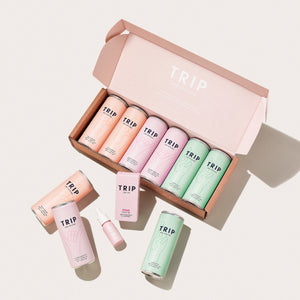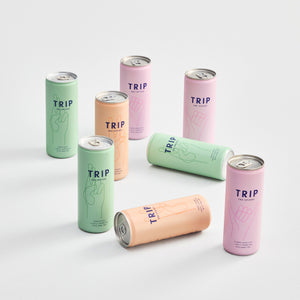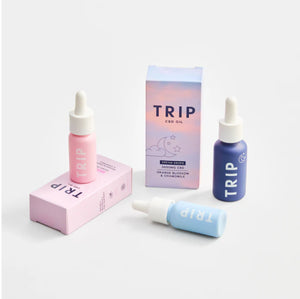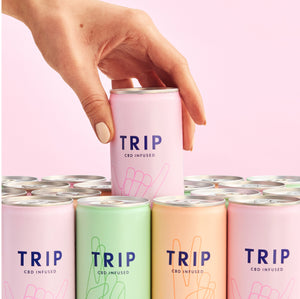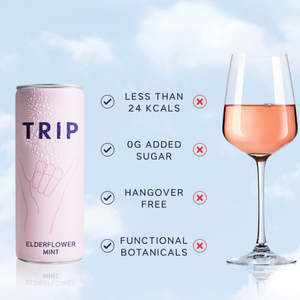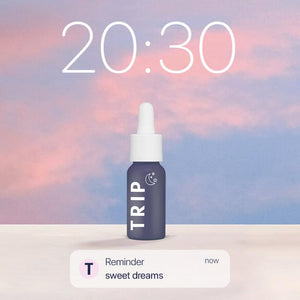Factors that affect CBD oil shelf life
A number of factors can affect how long your oil will last once it’s been opened. As soon as you understand what affects the shelf life of your CBD, you’ll know the measures to take to preserve your chosen product. Here are the biggest factors to look out for:
Ingredients
Each ingredient that goes into your CBD oil will have its own expiration date. Unfortunately, these can drag down the average shelf life of your entire product if components like flavourings start to degrade earlier than the oil itself. Therefore, the purer CBD oil you can get, the longer it is likely to last.
Vendor
Different vendors abide by different processes when producing their CBD oil, which inevitably results in varying quality between them. Reliable vendors will likely subject their goods to more rigorous testing procedures before they go to market to optimise their shelf life. Authorised sellers will also have received approval from the Foods Standards Agency (FSA) meaning that they will have better production standards than unregulated vendors. For a reliable product, it’s best to purchase from a reputable brand.
Quality
The quality of the CBD can also significantly affect its shelf life. As you’d expect, high-quality products usually last longer thanks to the kind of hemp that’s used, its growing conditions, and the other chemicals involved in the production process. Non-organic hemp grown in poor-quality soil may contain more pesticides and other chemicals, which could speed up the expiry of the product.
Type of CBD
The kind of CBD used also affects a product’s shelf life. For example, oils made with CBD isolate tend to last longer than other types of extract as they are purer, and don’t contain other plant components that could degrade quickly. On the other hand, whole-plant, broad-spectrum and full-spectrum extracts are all likely to expire sooner, as they may contain substances like waxes and essential oils.
Extraction method
Similarly, the means of extraction can impact the concentration of CBD and the stability of its compounds. Carbon dioxide extraction maximises the yield of CBD taken from the plant, making for a purer oil with a longer shelf life. Conversely, other methods like ethanol extraction can shorten the lifespan of your product, so it’s best to do your research into how your CBD is extracted before purchasing.
Storage
How you store your CBD plays a large role in how long it will last. Extreme temperatures and light exposure can speed up CBD’s expiry, so it's best to store your products somewhere dark and at room temperature.
Packaging
Darker-coloured, opaque and airtight containers are the best receptacles for CBD oil. These minimise the aforementioned effects of light and heat, as well as degradation from oxygen exposure.
How to tell if your CBD oil is expired?
With an approximate window of two years, there’s a chance that you’ll encounter expired CBD at some point. All products should list an expiration date, but improper storage can push this date forward, and sometimes you’ll need to tap into your senses to tell if something’s off. In the event that you’re not too sure, here are a few telltale signs to look out for:
Thickness
A change in the texture of your product is one giveaway that it may have gone off. If your oil has become thicker or looks to be separating out in the bottle, it might have passed its time. However, this isn’t to be confused with the thickness that CBD oil sometimes takes on once it’s been refrigerated for a while — it should return to a fluid state once removed from the fridge. If it doesn’t, however, it may have expired.
Colour
A colour change may also indicate that your CBD has gone off. If the oil goes murky or darker than its original hue, this can mean that its compounds are starting to break down.
Smell
CBD oil usually has a pleasant, slightly earthy scent. Like a lot of foods, if it carries a pungent or rotten odour, this probably means it’s gone off.
Taste
Lastly, your oil’s taste might let you know that it’s time for a replacement. Unflavoured CBD has a mild and earthy flavour, so if it’s bitter or unpleasant, it could well have expired.
What happens if you consume expired CBD oil?
Thankfully, consuming a little expired CBD won’t make you feel unwell, and it’s unlikely to cause an adverse reaction. However, CBD loses its potency over time and won’t have the desired effect that you expect from your product, because the cannabinoids in the oil degrade. As a result, any therapeutic benefits derived from normal CBD use are largely absent from expired oil.
CBD oil storage tips
As we mentioned earlier, CBD is sensitive to a couple of environmental factors that are well within your control. To extend its shelf life for as long as you can, it’s best to store your CBD somewhere dark and at room temperature, ideally below 23°C. A cupboard or pantry is probably your best bet, preferably kept away from windows, radiators and other heat sources.
You should also keep your CBD in its original packaging, as the opaque and airtight bottles that CBD oil products ship in can protect against light and oxygen exposure. When handling it, make sure your hands are clean, and that you seal the bottle tightly after each use. This will minimise any other exposure your product has to contaminants like bacteria.
Summary
CBD oil does expire, but is generally potent and fit for purpose for one to two years if stored correctly. This should be enough time for you to enjoy your product fully, even if you’re not a regular user. However, there are various factors that can influence CBD shelf life, and precautions that you can take to get the most bang for your buck.
Before you choose a product, make sure that you’re buying premium CBD from a reputable brand that uses good quality ingredients and the best extraction techniques. Once you’ve made the purchase, store it somewhere dark and cool in its original packaging. You can regularly check for telltale signs in its appearance, taste and smell that might indicate that it’s gone off.
If you have any other questions about using CBD properly, feel free to get in touch with us today.



